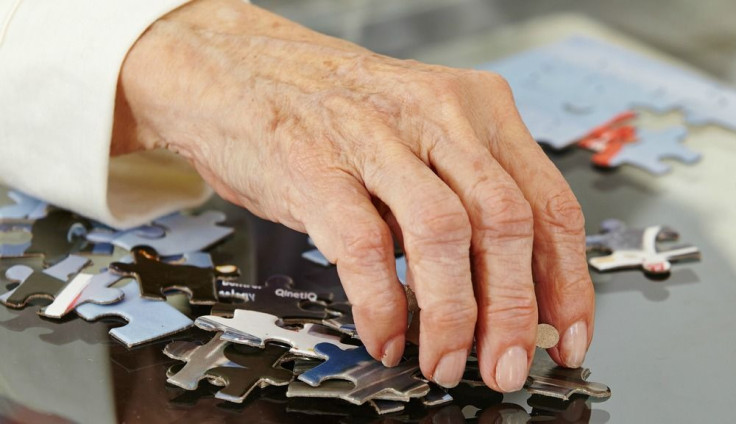'Healthy Aging Brain Monitor' Helps Patients Track And Self-Report Dementia Symptoms

You know how a blood pressure cuff makes it so patients can measure their blood pressure levels from the comfort of their own home? Something similar is now available for patients with dementia.
Researchers from the Regenstrief Institute and the IU Center for Aging Research in Indianapolis have developed the Healthy Aging Brain Center Monitor (HABC) to measure 27 items on a four-point scale of cognitive, functional, and psychological symptoms. It’s reliable, sensitive, and an easier-than-ever way for patients to keep track of cognitive decline and improvement. The patient version comes on the heels of a successful version designed for caregivers in 2012.
"Depression, anxiety, and inability to cope with demands of daily living are common in older adults,” Dr. Malaz Boustani, lead study author and investigator at the Regenstrief Institute, said in a press release. “The patient self-reporting version of the HABC Monitor helps busy physicians accurately measure and monitor the severity of symptoms, providing valuable information that the patient's entire care team needs.”
The cognitive measures of the monitor are self-reported; it’s designed to follow a patient’s ability to identify correct month and year, as well as handle complex financial affairs; functional measures follow a patient’s ability to learn to use everything from a new tool to recipe; and psychological measures follow a patient’s depression, anxiety, and appetite.
After 291 elderly patients with multiple chronic conditions, including dementia, diabetes, cancer, and stroke, tested the self-reported measures of the monitor under the care of their primary physician, researchers found “the patient-reported information yields an accurate assessment of the patient's cognitive, functional, and psychological well-being.”
Perfect scores are suspicious, co-author Dr. Patrick Monahan said. Or rather, perfect scores warrant additional testing and examination to rule out the possibility a patient is unaware of cognitive symptoms. Otherwise researchers find the HABC monitor is a practical clinical tool.
According to Aging Brain Care (ABC), as the population ages, dementia-related health costs are set to double in the next 20 years. And “most systems, dementia care is fragmented, frustrating, and fails to meet recommended standards.” In a single-site pilot at Indiand’s Wishard Health Services, ABC managed to reduce costs by 30 percent. The HABC monitor is one example of how these costs can be reduced, by allowing both patients and caregivers to stay on top of their brain health and care.
Currently, the monitor is available free with website registration or as an iOS app. Search “HABC” in the iTunes store to download.
Source: Monahan P, Alder C, Khan B, Stump T, Boustani M. The Healthy Aging Brain Care (HABC) Monitor: validation of the Patient Self-Report Version of the clinical tool designed to measure and monitor cognitive, functional, and psychological health. Clinical Interventions in Aging. 2014.



























